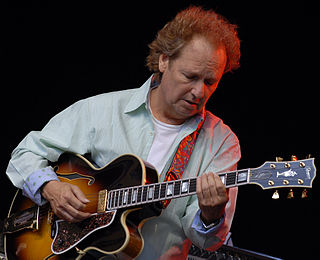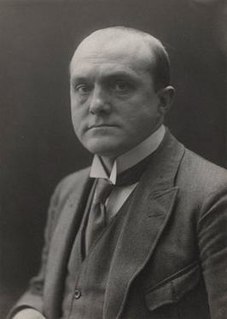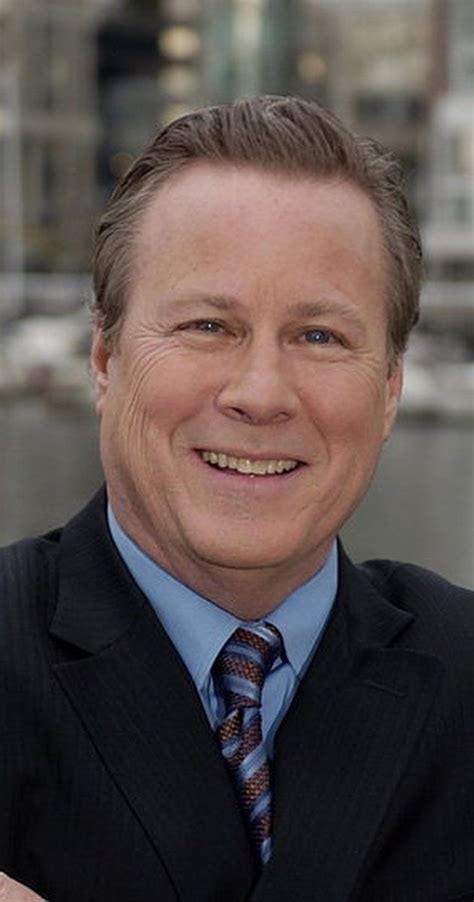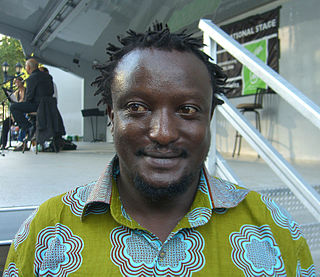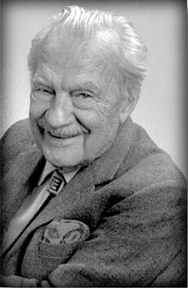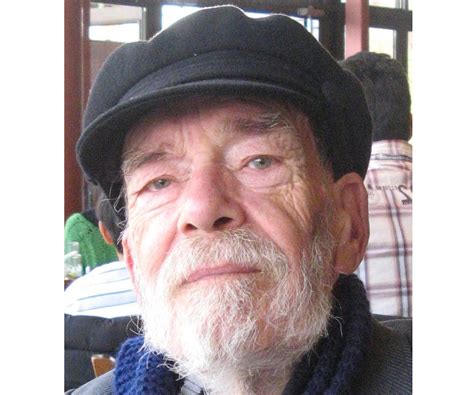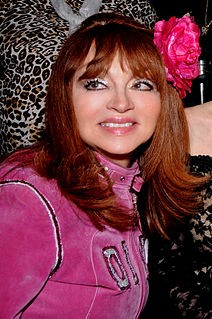Top 769 Tables And Chairs Quotes & Sayings - Page 13
Explore popular Tables And Chairs quotes.
Last updated on April 14, 2025.
[T]his free and easy old-bachelor sort of life is quite full of fun and jollity. Pease and myself room together; and everything like order and neatness is banished from our presence as a nuisance--old letters and old boots and shoes, duds clean and duds dirty, books and newspapers, tooth-brushes, shoe-brushes, and clothes-brushes, all heaped together on chairs, settees, etc., in dusty and "most admired confusion." Now, what is there imaginable in clean, tidy private life equal to this?
Once upon a time, when men and women hurtled through the air on metal wings, when they wore webbed feet and walked on the bottom of the sea, learning the speech of whales and the songs of the dolphins, when pearly-fleshed and jewelled apparitions of Texan herdsmen and houris shimmered in the dusk on Nicaraguan hillsides, when folk in Norway and Tasmania in dead of winter could dream of fresh strawberries, dates, guavas and passion fruits and find them spread next morning on their tables, there was a woman who was largely irrelevant, and therefore happy.
I like poor materials. I couldn't see myself making a bronze sculpture - it's not me. I like neon, because it's moving constantly and like drawing. The chemicals going through the neon turns me on really - it's sexy. I like fabrics, but one of the main things with objects is that I really have to love them before I can use them. I have to have the object around me a long time. The little chairs I used in my last White Cube show are ones that my dad bought for me. A sort of a psychometry with objects and things. It's like the pieces I've made are my things.
I think, as poets, we are in the odd position of constantly defending our art form. Which is funny and also sort of invigorating, too. No one really says, "Oh you're a lawyer? I've never understood the law. In fact, I kind of hate it." Or, "Oh you wait tables? I didn't know that was something people did." I say it can be invigorating because, on some level, we have to evaluate what we do and why we do it almost daily. We have to explain ourselves to people all the time. We have to say, "Yes, I am a unicorn, believe in me."
All parents want to send their children to the best possible schools. But because a good school is a relative concept, a family cannot achieve its goal unless it outbids similar families for a house in a neighborhood served by such a school. Failure to do so often means having to send your kids to a school with metal detectors at the front entrance and students who score in the 20th percentile in reading and math. Most families will do everything possible to avoid having to send their kids to a school like that. But because of the logic of musical chairs, they're inevitably frustrated.
Instead of looking at books and pictures about the New Testament I looked at the New Testament. There I found an account, not in the least of a person with his hair parted in the middle or his hands clasped in appeal, but of an extraordinary being with lips of thunder and acts of lurid decision, flinging down tables, casting out devils, passing with the wild secrecy of the wind from mountain isolation to a sort of dreadful demagogy; a being who often acted like an angry god — and always like a god.
Well, Smoke n' Mirrors has very much a world music flavor and it doesn't park itself in one country. It borrows heavily from the Brazilian angle, which is dear to my heart, and I recorded several albums with that flavor. Probably even more so than the Brazilian flavor, there's an African, South African and West African influence and on a couple of other tracks there's some Latin flavor and there's some Indian tables on one track, all centered around my jazz guitar and acoustic guitars, and very much a Lee Ritenour sound.
Fitzgerald describes the social disillusionments and ballroom romanticism of the young people of the upper classes and the loneliness of Gatsby, who gives large parties and has an extensive social life; yet he is lonely, and his guests scarcely know him.... Hemingway's characters live in a tourist world, and one of their major problems is that of consuming time itself. It is interesting to observe that his works are written from the stand point of the spectator. His characters are usually people who are looking--looking at bullfights, scenery, and at one another across cafe tables.
The world is rather shot to pieces [end of World War II - 1945], but the spectators climb out of their caves and pretend to have again become normal and customary humans who ask each other's pardon instead of eating one another or sucking each other's blood. The entertaining folly of war evaporates, distinguished boredom sits down again on the dignified old overstuffed chairs.. .May I report about myself that I have had a truly grotesque time, brim-full with work, Nazi persecutions, bombs, hunger, and again and again work - in spite of everything [a. o. using his bed sheets as canvas for the new paintings].
I want to quit. Not performing, but being a woman altogether. I want to throw my hands in the air, after reading a mean Twitter comment, and say, 'All right! You got it. You figured me out. I'm not pretty. I'm not thin. I do not deserve to use my voice. I'll start wearing a burqa and start waiting tables at a pancake house. All my self-worth is based on what you can see.' But then I think, F*** that ... I am a woman with thoughts and questions and s*** to say. I say if I'm beautiful. I say if I'm strong. You will not determine my story - I will.
I had been hungry all the years- My noon had come, to dine- I, trembling, drew the table near And touched the curious wine. 'Twas this on tables I had seen When turning, hungry, lone, I looked in windows, for the wealth I could not hope to own. I did not know the ample bread, 'Twas so unlike the crumb The birds and I had often shared In Nature's diningroom. The plenty hurt me, 'twas so new,-- Myself felt ill and odd, As berry of a mountain bush Transplanted to the road. Nor was I hungry; so I found That hunger was a way Of persons outside windows, The entering takes away.
"One of the advantages of having laws is the pleasure one may take in breaking them. We here are not children, Mr. Gurgeh." Hamin waved the pipestem round the tables of people. "Rules and laws exist only because we take pleasure in doing what they forbid, but as long as most of the people obey such proscriptions most of the time, they have done their job; blind obedience would imply we are - ha!" - Hamin chuckled and pointed at the drone with the pipe - "no more than robots!"
You need to understand something, you drink deeply from wells of freedom and liberty and opportunity that you did not dig. You eat lavishly from banquet tables prepared for you by your ancestors. You sit under the shade of trees that you did not plant or cultivate or care for. You have a choice in life, you can just sit back, getting fat, dumb, and happy, consuming all the blessings put before you, or it can metabolize inside of you, become fuel to get you into the fight, to make this democracy real, to make it true to its words that we can be a nation of liberty and justice for all.
I remember one afternoon when we were out on a golf course somewhere, and Lauren Bacall, James Garner, and Jack Lemmon were sitting there in deck chairs when I went off to do another scene. And I said something like, "Hey, where have you guys been?" And they said, "Oh, we were down at the clubhouse. We saw your scene!" And Jack Lemmon looked at James Garner, and James Garner looked back at me, and then they both looked back at me and said in unison, "You bet your ass it is!" So I've been up there with the greats. I've had my fleeting moments with theatrical genius.
Mma Ramotswe had a detective agency in Africa, at the foot of Kgale Hill. These were its assets: a tiny white van, two desks, two chairs, a telephone, and an old typewriter. Then there was a teapot, in which Mma Ramotswe – the only lady private detective in Botswana – brewed redbush tea. And three mugs – one for herself, one for her secretary, and one for the client. What else does a detective agency really need? Detective agencies rely on human intuition and intelligence, both of which Mma Ramotswe had in abundance. No inventory would ever include those, of course.
And found in the temple those that sold oxen and sheep and doves, and the changers of money sitting: And when he had made a scourge of small cords, he drove them all out of the temple, and the sheep, and the oxen; and poured out the changers' money, and overthrew the tables; And said unto them that sold doves, Take these things hence; make not my Father's house an house of merchandise.
The very best [infographics] engender and facilitate an insight by visual means - allow us to grasp some relationship quickly and easily that otherwise would take many pages and illustrations and tables to convey. Insight seems to happen most often when data sets are crossed in the design of the piece - when we can quickly see the effects on something over time, for example, or view how factors like income, race, geography, or diet might affect other data. When that happens, there's an instant "Aha!".
Then I saw Juli. She was two tables away from me, facing my direction. Only she wasn't looking at me. She was looking at Jon, her eyes all sparkly and laughing. My heart lurched. What was she laughing about? What were they talking about? How could she sit there and look so... beautiful? I felt myself spinning out of control. It was weird. Like I couldn't even steer my own body. I'd always thought Jon was pretty cool, but right then I wanted to go over and throw him across the room.
I often saw weary little women coming to the table after most exhausting labors, and large, bumptious husbands spreading out their hands and thanking the Lord for the meals that the dear women had prepared, as if the whole came down like manna from heaven. So I preached a sermon in the blessing I gave. You will notice that it has three heresies in it: Heavenly Father and Mother, make us thankful for all the blessings of this life, and make us ever mindful of the patient hands that oft in weariness spread our tables and prepare our daily food. For humanity's sake, Amen.
Eating alone is a disappointment. But not eating matter more, is hollow and green, has thorns like a chain of fish hooks, trailing from the heart, clawing at your insides. Hunger feels like pincers, like the bite of crabs; it burns, burns, and has no fur. Let us sit down soon to eat with all those who haven't eaten; let us spread great tablecloths, put salt in lakes of the world, set up planetary bakeries, tables with strawberries in snow, and a plate like the moon itself from which we can all eat. For now I ask no more than the justice of eating.
You don't know when you're twenty-three. You don't know what it really means to crawl into someone else's life and stay there. You can't see all the ways you're going to get tangled, how you're going to bond skin to skin. How the idea of separating will feel in five years, in ten - in fifteen. When Georgie thought about divorce now, she imagined lying side by side with Neal on two operating tables while a team of doctors tried to unthread their vascular systems. She didn't know at twenty-three.
International correspondents with their long dictaphones, and dirty jeans, and five hundred words before whiskey, are slouched over the red velvet chairs, in the VIP section in the front, looking for the Story: the Most Macheteing Deathest, Most Treasury Corruptest, Most Entrail-Eating Civil Warest, Most Crocodile-Grinning Dictatorest, MOst Heart-Wrenching and Genociding Pulitzerest, Most Black Big-Eyed Oxfam Child Starvingest, Most Wild African Savages Having AIDS-Ridden Sexest with Genetically Mutilatedest Girls...The Most Authentic Real Black Africanest story they can find.
You got guys that are so old, you see them eating lunch, the drool's just coming from their mouth, and they're sending around memos about 10 percent crosscuts. If I had one tenth of their money, I would be free. They don't know what freedom is. It's a disease. You're one of the rare people that is given freedom, and what do you do with it? You don't live. You choose to be dead in life. Money buys freedom. I mean why is this guy with the slobber worried about taking food off other people's tables? His $19 billion won't get him from where he is to the grave comfortably? That to me is a disease.
We have a game we play when we’re waiting for tables in restaurants, where you have to write the five things that describe yourself on a piece of paper. When I was [in my twenties], I would have put: ambitious, Wellesley graduate, daughter, Democrat, single. Ten years later not one of those five things turned up on my list. I was: journalist, feminist, New Yorker, divorced, funny. Today not one of those five things turns up in my list: writer, director, mother, sister, happy.
A man's liberal and conservative phases seem to follow each other in a succession of waves from the time he is born. Children are radicals. Youths are conservatives, with a dash of criminal negligence. Men in their prime are liberals (as long as their digestion keeps pace with their intellect). The middle aged run to shelter: they insure their life, draft a will, accumulate mementos and occasional tables, and hope for security. And then comes old age, which repeats childhood - a time full of humors and sadness, but often full of courage and even prophecy.
When I was a little kid and I heard a song I liked on TV, I would jump up and run to the piano to try and figure it out by ear. When I was 10 or 11, I built myself a drum kit in the garage made out of empty laundry detergent buckets, old lawn chairs, paint cans, and old trash cans. And around that time, my parents got me my first guitar. A baby acoustic. I jumped between all of these instruments constantly to satisfy the ideas I heard in my head. At this young age, I realized that music would play a huge part in my life.
"What do you want out of life?" I asked, and I used to ask that all the time of girls. "I don't know," she said. "Just wait on tables and try to get along." She yawned. I put my hand over her mouth and told her not to yawn. I tried to tell her how excited I was about life and the things we could do together; saying that, and planning to leave Denver in two days. She turned away wearily. We lay on our backs, looking at the ceiling and wondering what God had wrought when He made life so sad.
I shall never forget what I saw at the Museum of Modern Art: in a spotless schoolroom, fifty little girls painting away at tables covered with brushes, pots, tubes, bowls, staring into space and sticking out their tongues like the clever animals that ring a bell, tongues lolling and eyes vague. Teachers supervise these young creators of abstract art and slap their wrists if what they paint represents something and dangerously inclines toward realism. The mothers - still at the Picasso stage - are not admitted.
It was how wars really ended, Dieffenbaker supposed -- not at truce tables but in cancer wards and office cafeterias and traffic jams. Wars died one tiny piece at a time, each piece something that fell like a memory, each lost like an echo that fades in winding hills. In the end even war ran up the white flag. Or so he hoped. He hoped that in the end even war surrendered.
There are no unique postures and times and limitations that restrict our access to God. My relationship with God is intimate and personal. The Christian does not go to the temple to worship. The Christian takes the temple with him or her. Jesus lifts us beyond the building and pays the human body the highest compliment by making it His dwelling place, the place where He meets with us. Even today He would overturn the tables of those who make it a marketplace for their own lust, greed and wealth.
You try to sit down at approximately the same time every day. This is how you train your unconscious to kick in for you creatively. ... You put a piece of paper in the typewriter, or you turn on your computer and bring up the right file. ... You begin rocking, just a little at first, and then like a huge autistic child. ... Then your mental illnesses arrive at the desk like your sickest, most secretive relatives. And they pull up chairs in a semicircle around the computer, and they try to be quiet but you know they are there with their weird coppery breath, leering at you behind your back.
It's really not as bad as it sounds. I was attacked by a shark once, back when I was alive. Well, not so much a shark as a rather large fish. And not so much attacked as looked at menacingly. But it had murder in its eyes, that fish. I knew, in that instant, if our roles had been reversed and the fish had been holding the fishing pole and I had been the one to be caught, it wouldn't hesitate a moment before eating me. So I cooked it and ate before it had a chance to turn the tables.
I smiled at the stacks, inhaling again. Hundreds of thousands of pages that had never been turned, waiting for me. The shelves were a warm, blond wood, piled with spines of every color. Staff picks were arranged on tables, glossy covers reflecting the light back at me. Behind the little cubby where the cashier sat, ignoring us, stairs covered with rich burgundy carpet led up to the worlds unknown. 'I could just live here,' I said.
Percy and Reyna occupied matching praeters' chairs on the dais, which made Percy self-conscious. It wasn't easy looking dignified wearing a bedsheet and a purple cape. "The camp is safe," Octavian continued. " I'll be the first to congragulate our heroes for bringing back the legion's eagle and so much Imperial gold! Truly we have been blessed with good fortune. But why do more? Why tempt fate?" "I'm glad you asked." Percy stood, taking the question as an opening. Octavian stammered, " I wasn't--" "--Part of the quest," Percy said. "Yes I know. And your'e wise to let me explain, since I was.
The most pernicious aspect of procrastination is that it can become a habit. We don't just put off our lives today; we put them off till our deathbed. Never forget: This very moment, we can change our lives. There never was a moment, and never will be, when we are without the power to alter our destiny. This second we can turn the tables on Resistance. This second, we can sit down and do our work.
Jay Harman is the quintessential biomimic, a principled inventor who sees solutions everywhere he looks in the natural world. And he looks deeply, with the soul of a student. He moves with grace from a world of waving sea kelp to the world of sustainable design, bringing nature's wisdom into the board rooms of global companies, to the design tables of the engineers and designers who make our world. This is more than a business book, more than a memoir, more than a new way to solve global challenges. It's a book about a new way to think.
Civilization is drugs, alcohol, engines of war, prostitution, machines and machine slaves, low wages, bad food, bad taste, prisons, reformatories, lunatic asylums, divorce, perversion, brutal sports, suicides, infanticide, cinema, quackery, demagogy, strikes, lockouts, revolutions, putsches, colonization, electric chairs, guillotines, sabotage, floods, famine, disease, gangsters, money barons, horse racing, fashion shows, poodle dogs, chow dogs, Siamese cats, condoms, peccaries, syphilis, gonorrhea, insanity, neuroses, etc., etc.
Conclusions
I. A curve has been found representing the frequency distribution of standard deviations of samples drawn from a normal population.
II. A curve has been found representing the frequency distribution of values of the means of such samples, when these values are measured from the mean of the population in terms of the standard deviation of the sample...
III. Tables are given by which it can be judged whether a series of experiments, however short, have given a result which conforms to any required standard of accuracy or whether it is necessary to continue the investigation.
But, contrary to the lady's prejudices about the engineering profession, the fact is that quite some time ago the tables were turned between theory and applications in the physical sciences. Since World War II the discoveries that have changed the world are not made so much in lofty halls of theoretical physics as in the less-noticed labs of engineering and experimental physics. The roles of pure and applied science have been reversed; they are no longer what they were in the golden age of physics, in the age of Einstein, Schrödinger, Fermi and Dirac.
Bruno opened his eyes in wonder at the things he saw. In his imagination he had tough that all the huts were full of happy families, some of whom sat outside on rocking chairs in the evening and told stories about how things were so much better when they were children and they'd had nowadays. He thought that all the boys and girls who lived there would be in different groups, playing tennis or football, skipping and drawing out squares for hopscotch on the ground. As it turned out, all the things he thought might be there-wern't.'' -The boy in the striped Pajamas
The dictionary definition of a Christian is one who follows Christ; kind, kindly, Christ-like. Anarchism is voluntary cooperation for good, with the right of secession. A Christian anarchist is therefore one who turns the other cheek, overturns the tables of the moneychangers, and does not need a cop to tell him how to behave. A Christian anarchist does not depend upon bullets or ballots to achieve his ideal; he achieves that ideal daily by the One-Man Revolution with which he faces a decadent, confused, and dying world.
Go to the tea shop anywhere along the Ganga, sir, and look at the men working in that tea shop - men, I say, but better to call them human spiders that go crawling in between and under the tables with rags in their hands, crushed humans in crushed uniforms, sluggish, unshaven, in their thirties or forties or fifties but still "boys." But that is your fate if you do your job well - with honesty, dedication, and sincerity, the way Gandhi would have done it, no doubt.
I became aware of just how fleeting the sense of happiness was, and how flimsy its basis: a warm restaurant after having come in from the rain, the smell of food and wine, interesting conversation, daylight falling weakly on the polished cherrywood of the tables. It took so little to move the mood from one level to another, as one might push pieces on a chessboard. Even to be aware of this, in the midst of a happy moment, was to push one of those pieces, and to become slightly less happy.
Over the past month, Muslims have fasted, taking no food or water during daylight hours, in order to refocus their minds on faith and redirect their hearts to charity. Muslims worldwide have stretched out a hand of mercy to those in need. Charity tables at which the poor can break their fast line the streets of cities and towns. And gifts of food and clothing and money are distributed to ensure that all share in God's abundance. Muslims often invite members of other families to their evening iftar meals, demonstrating a spirit of tolerance.
I should have my own show by now. Yeah. How many damn sitcoms does Kelsey Grammer need? How many more stupid Housewives do they need throwing tables and limbs at each other. Yeah, I guess I need to take off my artificial leg and throw it at Vanderpump. I like doing live shows - it's just getting to them that's a hassle.Doing films is fun too ... a good film ... but there's a lot of waiting around.
Wizards don't believe in gods in the same way that most people don't find it necessary to believe in, say, tables. They know they're there, they know they're there for a purpose, they'd probably agree that they have a place in a well-organised universe, but they wouldn't see the point of believing, of going around saying "O great table, without whom we are as naught." Anyway, either the gods are there whether you believe in them or not, or exist only as a function of the belief, so either way you might as well ignore the whole business and, as it were, eat off your knees.
I don't wonder anymore what I'll tell God when I go to heaven when we sit in the chairs under the tree, outside the city........I'll tell these things to God, and he'll laugh, I think and he'll remind me of the parts I forgot, the parts that were his favorite. We'll sit and remember my story together, and then he'll stand and put his arms around me and say, "well done," and that he liked my story. And my soul won't be thirsty anymore. Finally he'll turn and we'll walk toward the city, a city he will have spoken into existence a city built in a place where once there'd been nothing.
A life of mere pleasure! A little while, in the spring-time of the senses, in the sunshine of prosperity, in the jubilee of health, it may seem well enough. But how insufficient, how mean, how terrible when age comes, and sorrow, and death! A life of pleasure! What does it look like when these great changes beat against it--when the realities of eternity stream in? It looks like the fragments of a feast, when the sun shines upon the withered garlands, and the tinsel, and the overturned tables, and the dead lees of wine.
My daughter is seven, and some of the other second-grade parents complain that their children don't read for pleasure. When I visit their homes, the children's rooms are crammed with expensive books, but the parent's rooms are empty. Those children do not see their parents reading, as I did every day of my childhood. By contrast, when I walk into an apartment with books on the shelves, books on the bedside tables, books on the floor, and books on the toilet tank, then I know what I would see if I opened the door that says 'PRIVATE--GROWNUPS KEEP OUT': a child sprawled on the bed, reading.






